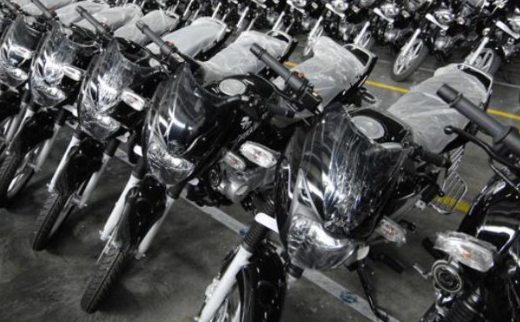Two weeks ago, the Borno State Government banned the use of motorcycles in Maiduguri and a neighbouring region of the Borno State capital. Newspapers carried pictures of empty streets in the metropolis, the day after the ban, since the motorcycle taxi, is a major business and a most assured means of transportation in Maiduguri, as in pretty much, most of Northern Nigeria, and the country as whole. The phenomenon of motorcycles crept upon us during military rule and it has all kinds of fanciful names around the country. In most of Northern Nigeria, it is called ACHABA; OKADA in most of the South, while in Ilorin it was originally EXPRESS; in Okene, the motorcycle taxi is GOING; and the people of Calabar call it AKA UKE.
The spread of the motorcycle taxi was a reflection of the collapse of the urban complex in Nigeria. The mass movement of people into badly-planned cities heightened during the oil boom of the 1970s. There was no strategic thinking or systematic planning in respect of urban transportation. The sprawling urban centres became uninhabitable slums, where there was the money to make, or so everybody thought, and since there was no urban mass transit system which the state planned or rationally regulated, transportation became a sector of private initiative. Before long, the motorcycle entered the mix and became a very important way to move around the Nigerian city. I have been fascinated with this phenomenon for a long time. In 1995, I made a package for the BBC’s NETWORK AFRICA, on ACHABA in Kano. Kano is the home of the motorcycle taxi; they are said to number up to a million and the city is also the national headquarters of motorcycle taxi operators. It became so serious that by 1995, Kano was recording 35 accidents per day, on the average. That led Murtala Muhammed Hospital, the largest hospital in Northern Nigeria, to dedicate a ward to victims of motorcycle accidents. So for my package, I rode on a motorcycle for a day, interviewed their national president (we became friends till I relocated from Kano, because I interviewed him for the BBC!); and visited victims on their beds at the hospital. It became clear that most of the motorcycle operators, in 1995, were déclassé; urban lumpens of rural origin, making ends meet the hard way, in Kano. Many also did drugs: Indian hemp; sniffing “solutions” and had a nihilistic attitude to life, encapsulated in two well-known slogans in the Kano of the 1990s: “MUTUWA DOLE KO KAFAR KATAKO” and “SHEKARA DA LAFIYA KAUYENCI NE”. These translate roughly as “death or an artificial limb”, if you rode a motorcycle; and the other says something to the effect that if you lived a whole year accident-free, you must be a “bush” man!
When politics returned in 1999, governors began to purchase motorcycles for their supporters (and thugs!), as an empowerment project. At least before they needed the thugs to break the heads of opponents during elections, they could transfer aggression unto the streets; consequently, accidents multiplied in Nigerian cities, while the operators became a notoriously lawless group. Woe betides whoever had an infraction with the motorcyclist, because they swarmed around you in minutes, and sometimes, they have been known to mob unlucky individuals or burn vehicles. Politicians often rent them to shore up flagging popularity. I know a Northern state, where the Aides of a thieving, but miserly governor, devised a means of extracting money from their principal, using motorcyclists. It was an effective method and they became millionaires without their thieving OGA ever knowing. It went this way: the previous governor had been removed by the ruling family in a bitter political war. So whenever that former governor would enter town, the Aides of the incumbent are forewarned by an informant. So they secretly distribute vests emblazoned with pictures of the visiting ex-governor amongst motorcycle operators for a small sum of money. They are then instructed to ride around town. The Aides rush to inform their principal that the ex-governor was arriving and they had ‘security reports’, that he would be grandly welcomed, including a procession by motorcyclists. OGA should please release money to counter the threat. He did that regularly, and they smiled to the bank!
Nasir El-Rufai was the first to pluck courage to ban them from the centre of Abuja, after becoming a complete nuisance. They seemed to be particularly popular with young ladies, who then display the beads on their bodies and the low G-string pant lines, further constituting a ‘moral danger’, in a society of hypocritical religiosity! This was the situation until Boko Haram devised a new use for motorcycles, as a major means of urban guerilla warfare. The group reportedly carried out operations from the backs of motorcycles, leading to the recent banning of motorcycles in Borno. So we went full circle; from the decay of the urban complex to a breakdown of order. The motorcycle’s metamorphosis is an expression of all that is wrong with our society today.


